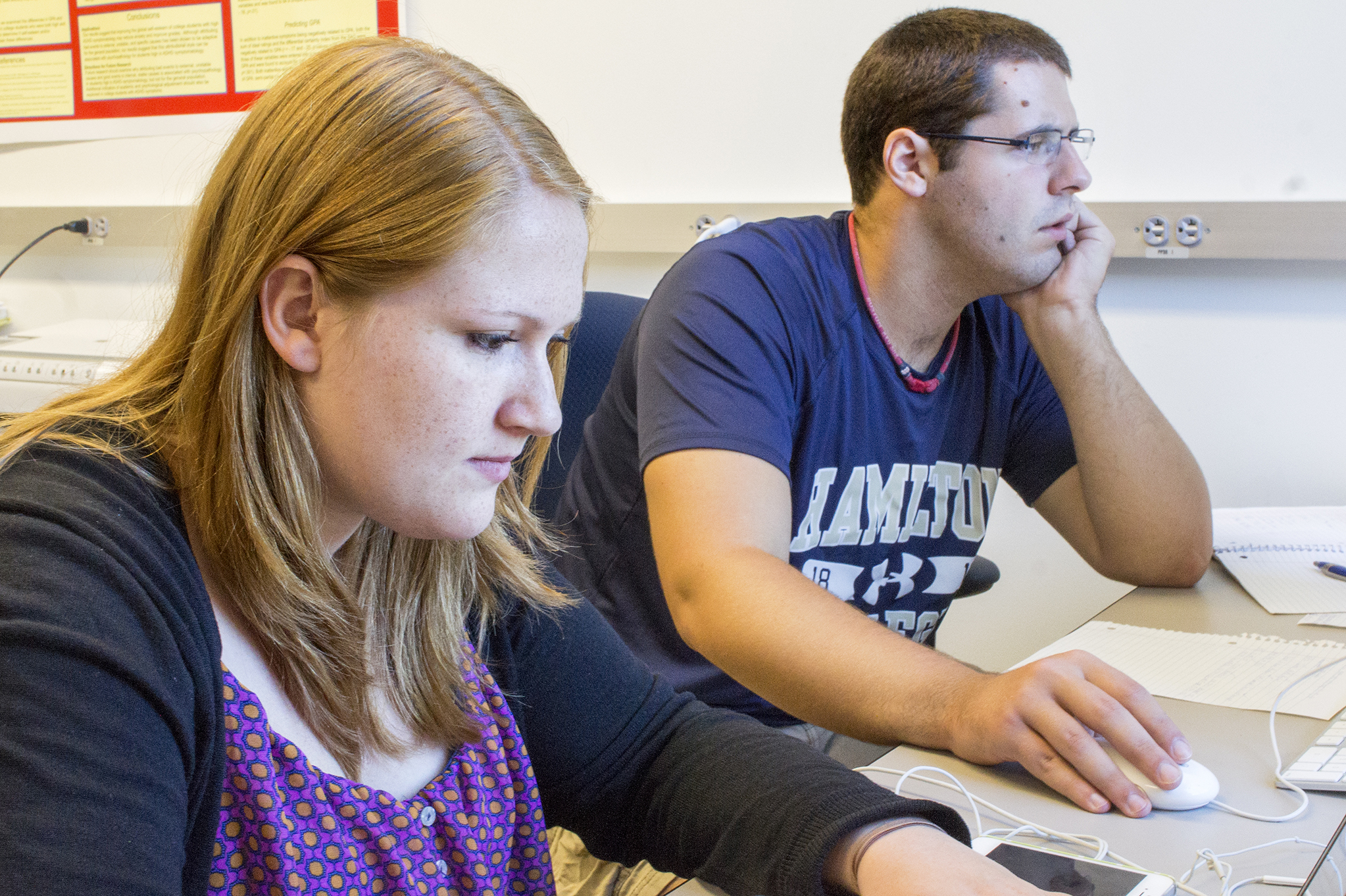
Courtney Hobgood ’15 and Josh DeVinney ’15 are spending the summer researching ADHD symptomatology (the set of characteristics associated with ADHD) under the direction of Associate Professor of Psychology Tara McKee. Their research focuses on college students, using data collected by Professor McKee and Hamilton College.
McKee collects data on ADHD symptomatology for each class of incoming first-year students before courses begin in the fall. Hobgood and DeVinney are using SPSS, a statistical software package often employed in psychological research, to analyze these data in tandem with data from a survey that Hamilton and McKee administer to graduating seniors. They hope to see how ADHD symptomatology changes over the course of a student’s college career and whether it correlates with particular types of behavior during college, including risk-taking and academic performance.
As Hobgood and DeVinney noted, there is a lot of attention given to ADHD in childhood and adolescence, but there is little research on ADHD and its effects in college-age populations. However, as a chronic condition, ADHD continues to affect students throughout their post-secondary education. As Hobgood remarked, “Behaviors commonly associated with ADHD symptomatology can have a great impact on the life of a college student. It is important that we recognize that ADHD can continue to impair individuals throughout their lives so that students in college with ADHD can receive accommodation and support from their institutions.”
Though they have only recently begun analyzing their data, Hobgood and DeVinney shared a few early findings: “Our preliminary results indicate that there is a relationship between both freshman and senior year ADHD symptoms and aspects of academic life, such as lower college GPA and reporting being late to class or being bored in class.” In addition, they have found that students who exhibit more ADHD symptoms report having lower confidence levels in social situations and feeling less integrated in the academic and social realms of college.
This research fits nicely with both Hobgood and DeVinney’s intended career paths. Hobgood explained, “I hope to work in college admissions and help students with learning challenges like ADHD have greater access to a college education.”
DeVinney, on the other hand, hopes to enter into a clinical psychology program. He would like to specialize in forensic psychology to perhaps work in the legal system, and as he noted, “a lot of work in this field is done with people who have ADHD.”
Overall, this summer has provided Hobgood and DeVinney — both psychology majors — with excellent exposure to formal psychological research and the considerations and practices essential to conducting correlational studies.
Courtney Hobgood ’15 is a graduate of the Taft School (Conn.). Josh DeVinney ’15 is a graduate of Coxsackie-Athens Central School (N.Y.)
Posted July 9, 2014
